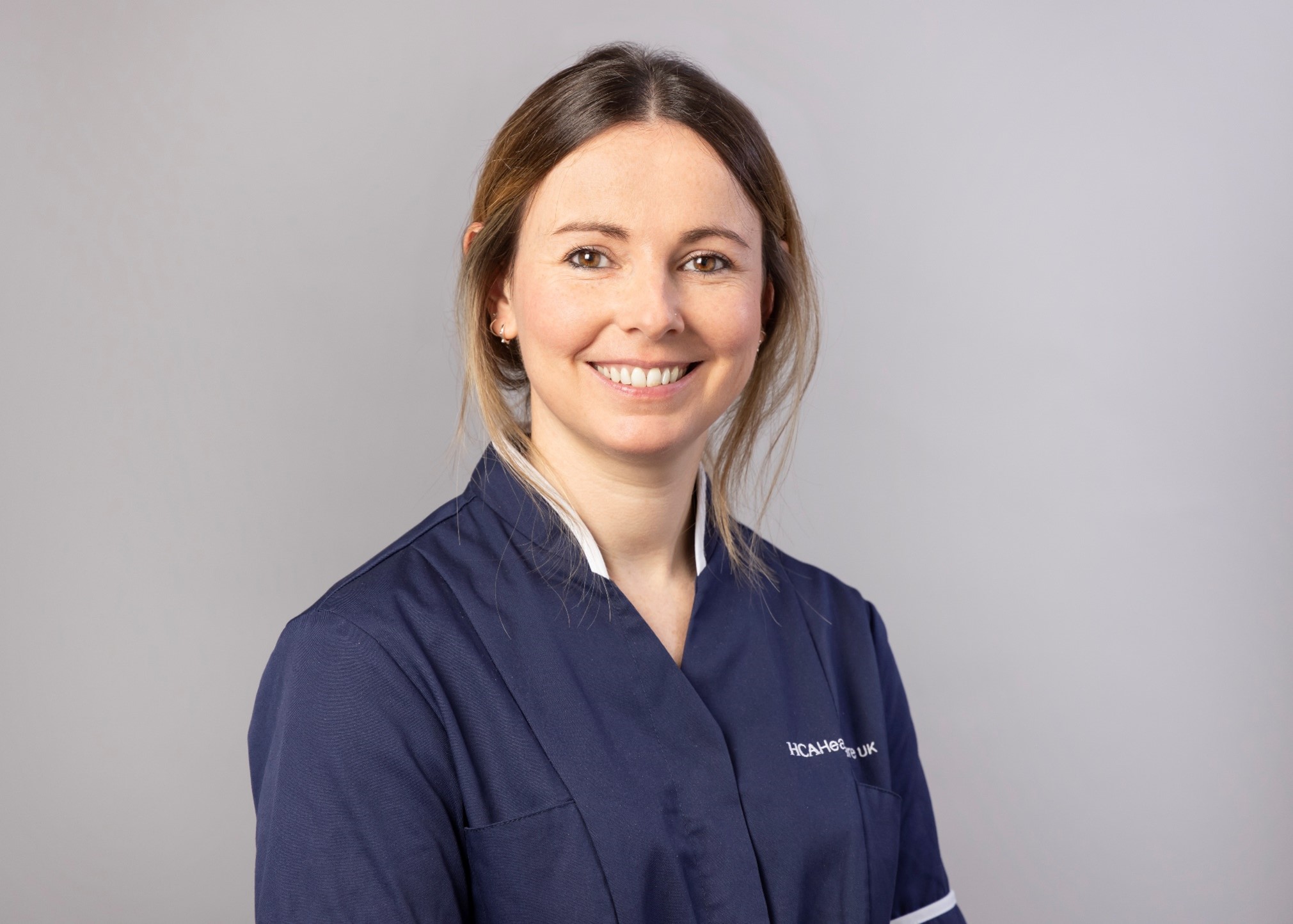International Nurses Day in the life: “It’s about walking alongside individuals and couples as they navigate their fertility journeys.”
To mark International Nurses Day, Frances Garrigan, Fertility Matron at the Lister Fertility Clinic, shares her experience of supporting individuals and couples on their fertility journeys.
For the past 15 years, I have been with the Lister Fertility Clinic, starting as a Staff Nurse before progressing to my current role of Fertility Matron. During that time, I have become a specialist fertility nurse, with an exceptional understanding of fertility treatments and patient care. I now head a multidisciplinary team of nurses and sonographers, who are committed to providing compassionate and expert care.
As Fertility Matron, I’m not only entrusted with the privilege of guiding individuals and couples through some of the most intimate and transformative moments of their lives, but I am also leading a team of professionals. Every day is unique, filled with different challenges, emotions, and moments of connection. Whether I’m supporting someone through fertility struggles, providing advice on reproductive health, or simply being a listening ear, my role is as much about nurturing the spirit as it is about offering practical guidance.
My typical day starts with a team huddle to go over the clinic schedule and review the list of appointments and tasks. It’s important to stay organised, as the work can involve both emotional and physical elements that require a thoughtful approach. I get ready for work, taking extra care in preparing for my clients, who come from all walks of life and carry unique stories. Whether it’s talking about ovulation cycles or offering support for IVF, being prepared ensures I can provide the most accurate and compassionate guidance.
My first appointment is with a couple who have been struggling with infertility for a while. They’re seeking guidance and they’ve been feeling overwhelmed by the complex world of reproductive health. I spend time listening to their concerns, addressing any misconceptions, and helping them understand the various factors that affect fertility. It’s not just about medical advice; a big part of my role is offering emotional support. I know how emotionally taxing fertility struggles can be, and often, it’s about providing a safe space where couples can express their feelings without fear of judgment. We talk many things, including stress management, but most importantly I provide them with hope, something that is often the hardest thing to hold on to during difficult times.
Next, I meet with a woman who’s undergoing her first round of IVF. She’s feeling anxious about her upcoming procedure so I help her prepare mentally and emotionally for the journey ahead by going over what she can expect in the coming weeks, from hormone treatments to the potential physical side effects.
When patients are preparing to undergo IVF, our main focus is ensuring that they feel empowered and informed about the process and what it entails. We want every patient who has treatment at the clinic to feel like they know what’s happening with their bodies, even in the midst of invasive medical procedures that can often feel out of their hands.
There’s always a focus on making sure patients feel empowered and informed, so they can take control of their body and choices. At the end of our session, I ask if she has any questions or concerns, making sure she feels comfortable and ready for the steps ahead. The day continues with many other patients, meetings, emails and managing the team.
As part of my role, I am also expected to attend regular multidisciplinary meetings, which offer unique insights into the heart of the clinic and the wider hospital operations. These meetings provide a platform for discussing patient care, staff wellbeing, and policy updates. It’s a space where leadership, collaboration, and clinical excellence come together. For staff, it’s a chance to raise concerns, suggest improvements, and stay informed about changes affecting the clinic and hospital. The Matron’s role in these meetings reflects my commitment to high standards of care and compassionate leadership. Being part of such discussions fosters professional growth and a deeper understanding of healthcare delivery.
The day winds down with a brief period of reflection. I update client records and document notes. This is also a time for me to reflect on the impact of the day’s work. Fertility can be such an emotional and challenging journey for so many, and I always feel grateful for the trust my clients place in me. It is important to remember why I do this job, and the knowledge that tomorrow will bring new opportunities to make a difference in someone’s life.
Being a Fertility Matron isn’t just about giving advice or information, it’s about walking alongside individuals and couples as they navigate their fertility journeys. It’s about being there in moments of joy and in moments of grief, offering both knowledge and emotional support. It’s about leading a team and upholding patient safety and high standards of care. I am proud to be a fertility nurse, but I’m aware it’s not for everyone and definitely not the faint hearted. You need to be compassionate, kind, methodical, organised and a sense of humour is a must. But, above all, it’s a great profession and there is so much opportunity to grow your career, while making a difference in the lives of the patients you encounter.

About the author:
Frances Garrigan is Fertility Matron at the Lister Fertility Clinic. Her nursing journey began at the Florence Nightingale School of Nursing and Midwifery at Kings College London. After graduating, she worked in a variety of hospital settings, shaping the nurse she is today. Over the past 20 years, she’s witnessed first-hand the highs and lows of this complex, rewarding, and sometimes gruelling profession.
| Publication date: |
|---|

